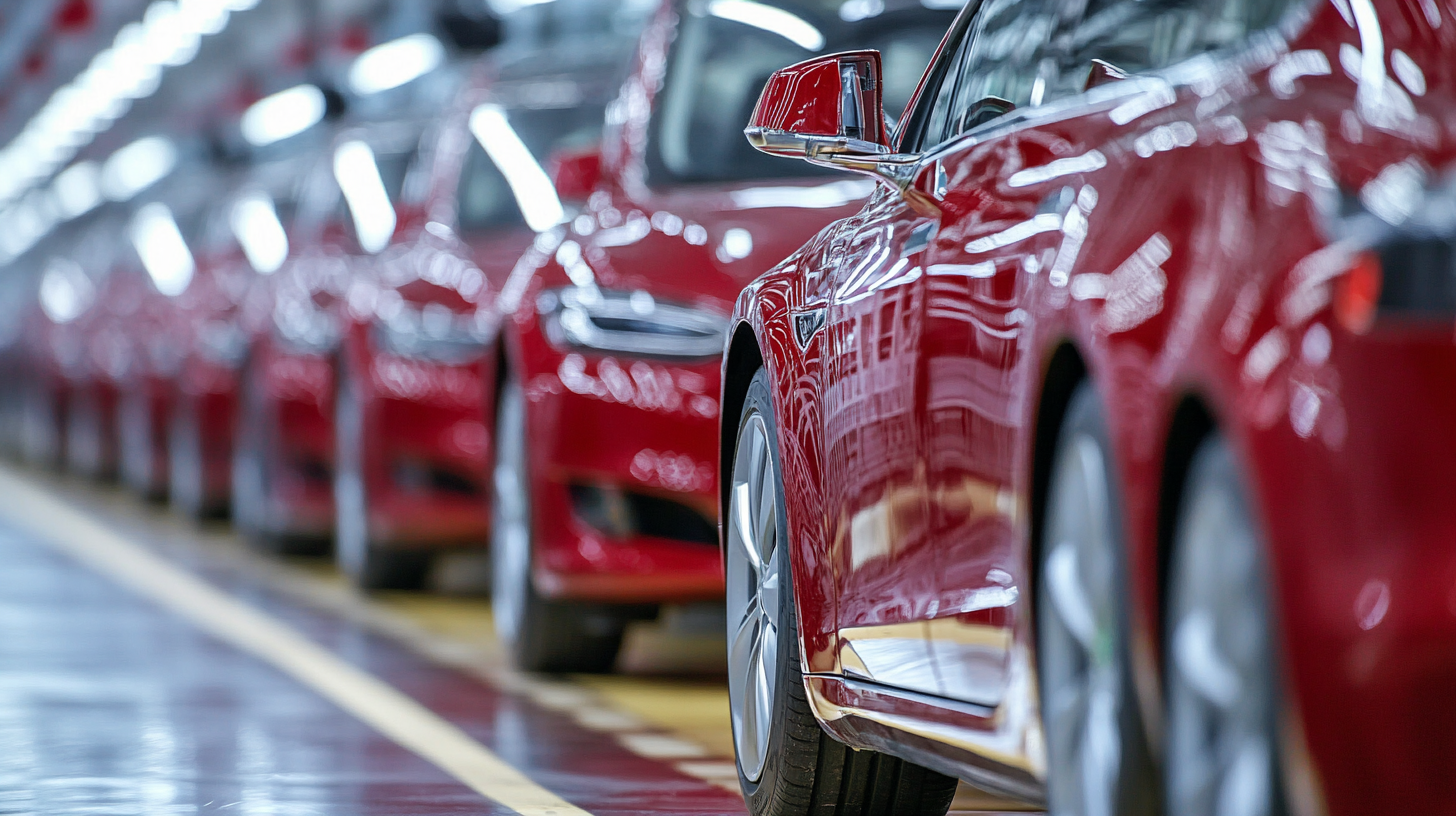How China's Car Battery Industry Thrives Amidst Tariff Challenges: A Global Sourcing Perspective
In recent years, the global automotive landscape has been dramatically reshaped by the booming car battery industry, particularly in China. Despite the ongoing tariff challenges between the United States and China, which could reach as high as 25% on some products, China's car battery sector has exhibited remarkable resilience and growth. The International Energy Agency (IEA) reported that China accounted for over 70% of the world's lithium-ion battery production in 2022, underscoring its pivotal role in the electric vehicle (EV) transition. Additionally, according to a report from the China Automotive Battery Innovation Alliance, battery production in the country is anticipated to reach a staggering 1,200 GWh by 2025, further solidifying its position as a global leader. These figures highlight not only China's ability to navigate tariff adversities but also its strategic advantages in global sourcing, positioning the nation as an indispensable player in the future of sustainable transportation.

China's Car Battery Production: Resilience in the Face of Tariff Hikes
China's car battery production has demonstrated remarkable resilience, particularly in light of recent tariff hikes that could have derailed other industries. The country's manufacturers have quickly adapted to changing global trade dynamics by leveraging their domestic supply chains and enhancing production efficiency. Innovative technologies and increased investment in research and development have been key to maintaining competitive pricing and high-quality output. As a result, Chinese car batteries continue to dominate both domestic and international markets, providing a reliable energy source for electric vehicles amidst fluctuating economic conditions.
Additionally, China's strategic focus on sourcing raw materials locally and forming partnerships with global suppliers has fortified its position in the industry. By diversifying their procurement strategies and embracing alternative resources, Chinese battery producers are mitigating the impacts of tariffs and ensuring stable production costs. This agile approach not only buffers them against external shocks but also aligns with the global push towards sustainable energy. The responsiveness and strategic foresight of China's car battery manufacturers exemplify how resilience, innovation, and effective global sourcing can lead to enduring success, even in challenging environments.

Impact of Tariffs on Global Supply Chains: A Case Study of the Battery Industry
The impact of tariffs on global supply chains has become increasingly pronounced, particularly in the car battery industry, which is pivotal to the electric vehicle (EV) market. Tariffs imposed on raw materials and components can significantly inflate costs, forcing manufacturers to reassess their sourcing strategies. For example, high tariffs on lithium and cobalt — essential components in battery production — have prompted companies to diversify their supply chains beyond traditional sources. This shift not only mitigates the risk of price fluctuations but also enhances resilience against geopolitical tensions.
China's battery manufacturers have adapted remarkably well to these challenges by leveraging their extensive domestic supply chains and investing in local resources. By focusing on vertical integration, these companies can streamline production processes and reduce dependency on foreign materials subject to tariffs. Moreover, they are exploring partnerships in other countries to strengthen their global reach while circumventing tariff barriers. This proactive approach not only solidifies China's position in the global battery market but also offers valuable lessons in navigating supply chain complexities amidst evolving trade policies.
Innovations Driving China's Battery Market Growth Amidst Trade Pressures
China's battery industry is navigating a complex landscape, marked by the U.S.-China trade war and rising uncertainty regarding critical minerals supply chains. Despite these challenges, innovation remains the driving force behind the growth of China's battery market. Chinese manufacturers are not only adapting to the pressures of tariffs but are also pioneering advancements in battery technology and production processes. This resilience is evident as they explore new materials and efficiency improvements, which are crucial for maintaining a competitive edge in the global market.
Furthermore, the trade tensions have prompted a re-evaluation of global sourcing strategies. Chinese companies are increasingly looking at diversifying their supply chains and securing alternative sources of raw materials. This shift not only mitigates risks associated with tariffs but also supports China's broader energy transition goals. By investing in research and partnerships, China's battery manufacturers are positioning themselves to thrive, ensuring that the country continues to lead in electric vehicle innovation amid geopolitical pressures and market fluctuations.
Global Market Share of China’s Car Battery Industry in 2023
This pie chart illustrates the market share of major players in China's car battery industry for the year 2023, highlighting the dominance of CATL and BYD amidst global competition. With the ongoing tariff challenges, these companies continue to thrive and innovate.
Market Data Analysis: China's Dominance in EV Battery Manufacturing in 2023
In 2023, China has solidified its position as the preeminent force in the electric vehicle (EV) battery manufacturing sector. With advanced technologies and economies of scale, Chinese companies have outpaced their global competitors, capturing a significant market share. According to recent market data, China produced nearly 70% of the world's lithium-ion batteries, showcasing its unmatched capacity and innovation in this rapidly evolving industry. This dominance is driven not only by state-backed support and investment but also by the aggressive expansion of critical supply chains that ensure access to essential materials.
Moreover, the success of China's car battery industry amidst tariff challenges highlights its resilience and strategic approach to global sourcing. Companies have adapted by diversifying their supply networks beyond domestic sources to include partnerships with suppliers from various countries. This strategy mitigates risks associated with rising tariffs and geopolitical tensions. The combination of robust production capabilities, strategic sourcing efforts, and the pursuit of technological advancements ensures that China's EV battery industry remains at the forefront of the global market in 2023.
Strategic Sourcing Solutions: Ensuring Competitiveness in a Tariff-Heavy Environment
In today's tariff-heavy environment, China's car battery industry has adopted innovative strategic sourcing solutions to maintain its competitiveness in the global market. By diversifying supply chains and leveraging domestic resources, manufacturers are not only minimizing costs but also enhancing their resilience against fluctuating tariffs. This proactive approach allows companies to adapt quickly to trade changes while ensuring a steady supply of essential materials needed for battery production.
Moreover, collaboration with international partners is becoming increasingly crucial. By forming joint ventures and alliances, Chinese manufacturers can gain access to advanced technologies and best practices. These partnerships enable them to meet stringent global standards, which can offset the impact of tariffs. Additionally, investing in R&D to develop new battery technologies positions them favorably against competitors, as innovation continues to be a significant driver in the automotive sector. Ultimately, these strategic sourcing solutions reflect an agile response to trade challenges, ensuring that China remains a dominant player in the car battery industry.

